 W
WCyril Alexander Highett Baily was an English amateur cricketer. He was a right-handed batsman who played for Glastonbury Cricket Club, and made one first-class appearance for Somerset, in 1902.
 W
WJames Barry, 4th Earl of Barrymore was an Irish soldier and Jacobite politician.
 W
WArthur Hugh Henry Batten-Pooll VC MC was an English recipient of the Victoria Cross, the highest and most prestigious award for gallantry in the face of the enemy that can be awarded to British and Commonwealth forces.
 W
WGeneral Sir Walter Pipon Braithwaite, was a British Army officer who held senior commands during the First World War. After being dismissed from his position as Chief of Staff for the Mediterranean Expeditionary Force, he received some acclaim as a competent divisional commander on the Western Front. After the war, he was commissioned to produce a report analysing the performance of British staff officers during the conflict.
 W
WAlfred Ernest Brown was a British politician who served as leader of the Liberal Nationals from 1940 until 1945. He was a member of Parliament and also held many other political offices throughout the Second World War.
 W
WWilliam Nigel Ernle Bruce was a British character actor on stage and screen. He was best known for his portrayal of Dr. Watson in a series of films and in the radio series The New Adventures of Sherlock Holmes. Bruce is also remembered for his roles in the Alfred Hitchcock films Rebecca and Suspicion.
 W
WGeorge Albert Cairns VC was an English recipient of the Victoria Cross, the highest award for gallantry in the face of the enemy that can be awarded to British and Commonwealth forces.
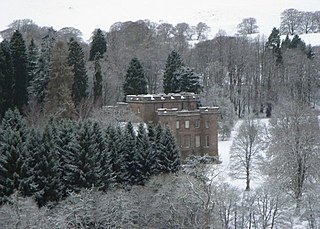 W
WGeneral Alexander Campbell of Monzie Castle, Perth was a British Army general and Member of Parliament.
 W
WSir Richard Church was a British military officer in the British Army and commander of the Greek forces during the last stages of the Greek War of Independence after 1827. After Greek independence, he became a general in the Hellenic Army and a member of the Greek Senate.
 W
WBrian Brendon Talbot Cleeve was a writer, whose published works include twenty-one novels and over a hundred short stories. He was also an award-winning broadcaster on RTÉ television. Son of an Irish father and English mother, he was born and raised in England. He lived in South Africa during the early years of National Party rule and was expelled from the country because of his opposition to apartheid. In his early thirties he moved to Ireland where he lived for the remainder of his life. In late middle age he underwent a profound spiritual experience, which led him to embrace mysticism. He developed a model for the spiritual life based on the principle of obedience to the will of God.
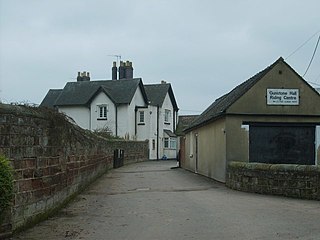 W
WLieutenant General Thomas Fowke, also spelt Foulks, circa 1690 to 29 March 1765, was a British military officer of the 18th century. He was Governor of Gibraltar from 1753 to 1756, and twice court-martialled during his service.
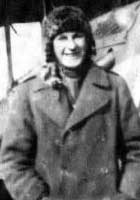 W
WSquadron Leader William Mayes Fry was a World War I Royal Flying Corps and Royal Air Force fighter ace. He was credited with eleven aerial victories, piloting no fewer than four different types of fighter aircraft. Fry also has the distinction of being one of the few World War I airmen to survive to the 1990s.
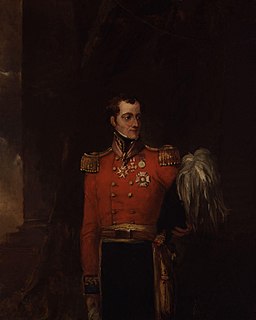 W
WField Marshal Sir William Maynard Gomm was a British Army officer. After taking part in the Anglo-Russian invasion of Holland, he served in most of the battles of the Napoleonic Wars. During the Hundred Days he took part in both the Battle of Quatre Bras and the Battle of Waterloo. He went on to be Commander of the troops in Jamaica and in that role established new barracks at Newcastle, Jamaica, high in the mountains. After that he became Governor of Mauritius and, finally, Commander-in-Chief, India, in which role he introduced promotion examinations for officers.
 W
WField Marshal Allan Francis Harding, 1st Baron Harding of Petherton,, known as John Harding, was a senior British Army officer who fought in both the First World War and the Second World War, served in the Malayan Emergency, and later advised the British government on the response to the Mau Mau Uprising. He also served as Chief of the Imperial General Staff (CIGS), the professional head of the British Army, and was Governor of Cyprus from 1955 to 1957 during the Cyprus Emergency.
 W
WMajor General Sir Henry Havelock was a British general who is particularly associated with India and his recapture of Cawnpore during the Indian Rebellion of 1857.
 W
WCharles Allan Seymour Hawker was an Australian politician. He was a member of the Australian House of Representatives for Wakefield from 1929 until his accidental death in 1938, representing the Nationalist Party (1929–1931) and its successor the United Australia Party (1931–1938). He was Minister for Repatriation and Minister for Markets in the Lyons government from 1931 to 1932.
 W
WGeneral Sir Henry John Thoroton Hildyard was a British Army officer who saw active service in the Anglo-Egyptian War of 1882 and the Second Boer War. He was General Officer Commanding-in-Chief, South Africa, from 1905 to 1908.
 W
WTheophilus Hastings, 7th Earl of Huntingdon was a 17th-century English politician and Jacobite. One of the few non-Catholics to remain loyal to James II of England after November 1688, on the rare occasions he is mentioned by historians, he is described as a 'facile instrument of the Stuarts,' a 'turncoat' or 'outright renegade.'
 W
WLieutenant Colonel Alfred Stowell Jones, VC was an English recipient of the Victoria Cross, the highest and most prestigious award for gallantry in the face of the enemy that can be awarded to British and Commonwealth forces.
 W
WGeneral Lord Mark Ralph George Kerr GCB was a British Army officer who served in the Crimean War and in India.
 W
WCaptain Simmon Latutin GC was a British Army officer who was posthumously awarded the George Cross, the highest British award for bravery out of combat. He won his award for the gallantry he showed in rescuing two comrades, and attempting to save a boy, from a blazing ammunition store on 29 December 1944 in Mogadishu, Somaliland.
 W
WWilliam Knox-Leet VC CB, was an Irish recipient of the Victoria Cross, the highest and most prestigious award for gallantry in the face of the enemy that can be awarded to British and Commonwealth forces.
 W
WClive Staples Lewis was a British writer and lay theologian. He held academic positions in English literature at both Oxford University and Cambridge University. He is best known for his works of fiction, especially The Screwtape Letters, The Chronicles of Narnia, and The Space Trilogy, and for his non-fiction Christian apologetics, such as Mere Christianity, Miracles, and The Problem of Pain.
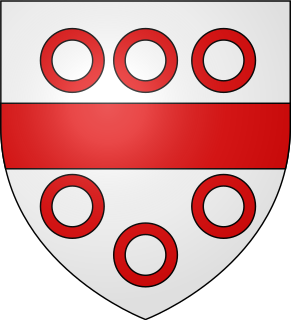 W
WRobert Lucas, 3rd Baron Lucas was an English nobleman and army officer.
 W
WJohn "Jack" Crawford William MacBryan was an English cricketer who played for Cambridge University and Somerset and made one almost imperceptible appearance in a Test match for England. MacBryan was also a field hockey international and won a gold medal at the 1920 Olympic Games with the Great Britain and Ireland team.
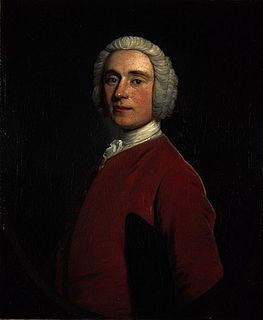 W
WGeneral James Murray was a Scottish army officer, whose lengthy career included service as colonial administrator and governor of the Province of Quebec and later as Governor of Minorca from 1778 to 1782. His term in Quebec was notably successful, and marked with excellent relationships with the conquered French-Canadians, who were reassured of their traditional rights and customs.
 W
WSir George Nugent, 1st Baronet, GCB was a British Army officer. After serving as a junior officer in the American Revolutionary War, he fought with the Coldstream Guards under the Duke of York during the Flanders Campaign. He then commanded the Buckinghamshire Volunteers in the actions of St. Andria and Thuyl on the river Waal and participated in the disastrous retreat from the Rhine. He went on to be commander of the northern district of Ireland, in which post he played an important part in placating the people of Belfast during the Irish Rebellion, and then became Adjutant-General in Ireland. He went on to be Governor of Jamaica, commander of the Western District in England, commander of the Kent District in England and finally Commander-in-Chief, India.
 W
WSir Henry Bradshaw Popham was a soldier in the South African War and Governor of the Windward Islands 1937–1942.
 W
WGeneral Harry Pulteney was an English soldier and Member of Parliament.
 W
WWilliam Arnold Ridley, OBE was an English playwright and actor, earlier in his career known for writing the play The Ghost Train and later in life for portraying the elderly Private Godfrey in the British sitcom Dad's Army (1968–1977).
 W
WMajor-General Sir Robert Henry Sale was a British Army officer who commanded the garrison of Jalalabad during the First Afghan War and was killed in action during the First Anglo-Sikh War.
 W
WPeter John Snow is a British radio and television presenter and historian. Between 1969 and 2005, he was an analyst of general election results, first on ITV and later for the BBC. He presented Newsnight from its launch in 1980 until 1997. He has presented a number of documentaries, including some with his son, Dan Snow.
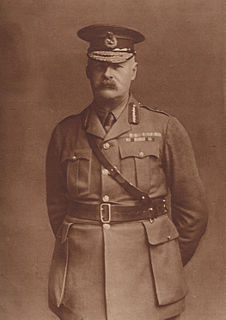 W
WLieutenant-General Sir Thomas D’Oyly Snow, was a British Army officer who fought on the Western Front during the First World War. He played an important role in the war, leading the 4th Division in the retreat of August 1914, and commanding VII Corps at the unsuccessful Gommecourt diversion on the first day on the Somme and at the Battle of Cambrai in November 1917.
 W
WLieutenant-General Sir John George des Reaux Swayne KCB CBE was a senior British Army officer who became General Officer Commanding-in-Chief (GOC-in-C) of South-Eastern Command during World War II.
 W
WJohn Whitelocke was a British Army officer.
 W
WPrince William Henry, Duke of Gloucester and Edinburgh,, was a grandson of King George II and a younger brother of King George III of the United Kingdom.